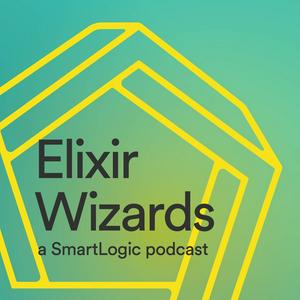In this episode, Elixir Wizard Charles Suggs sits down with Victor Björklund to map out the landscape of Python integration in Elixir applications. From HTTP APIs and external services to embedded runtimes like ErlPort, PythonX, and the Venomous library, we evaluate each approach’s impact on performance, coupling, and developer experience. Victor draws on real-world examples like Scrapy-based web scraping and the Swedish BankID authentication to illustrate best practices for error handling, process pooling, and effective telemetry across the BEAM boundary.
We also tackle the practical side of deployment: packaging Python dependencies in Mix releases, mocking Python calls in tests, and deploying multi-language apps with confidence. Wrapping up, Victor shares his wishlist for even tighter interop (think multiple Python interpreter instances per VM) and offers low-risk entry points, like automating monthly reports, for teams ready to explore the power of Python’s ecosystem within Elixir.
Key topics discussed in this episode:
Integration methods: HTTP APIs, ports, ErlPort, PythonX, Venomous
Performance vs. coupling trade-offs across interop patterns
Managing the Global Interpreter Lock (GIL) with process pools
Leveraging mature Python libraries (Scrapy, BankID, etc.)
Error handling strategies across BEAM↔Python boundaries
Testing mixed-language systems: mocks and integration tests
Packaging and deploying Python alongside Elixir releases
Monitoring and telemetry for multi-language pipelines
Functional programming advantages in Elixir workflows
Tool selection guidance by project requirements
Future possibilities: multiple Python interpreters in one VM
Community resources for Python–Elixir interop help
Links mentioned:
jawdropping.io
https://cplusplus.com/
https://www.python.org/
https://react.dev/
https://nodejs.org/en
https://erlport.org/
https://hexdocs.pm/pythonx/Pythonx.html
https://pyrlang.github.io/Pyrlang/
Python GIL (Global Interpreter Lock): https://realpython.com/python-gil/
https://github.com/devinus/poolboy
https://hexdocs.pm/venomous/Venomous.html
Try-catch https://syntaxdb.com/ref/python/try-catch
https://www.scrapy.org/
https://www.bankid.com/en/
https://www.phoenixframework.org/
https://www.tzeyiing.com/posts/using-a-hunky-poolboy-to-manage-your-python-erlport-processes-in-elixir/
https://medium.com/stuart-engineering/how-we-use-python-within-elixir-486eb4d266f9
https://x.com/bjorklundvictor
https://victorbjorklund.com/
https://www.linkedin.com/in/victorbjorklund/
[email protected]

